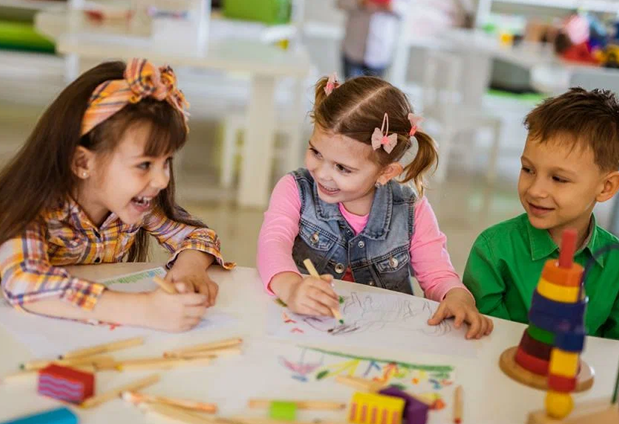When reading aloud, don’t just read the words—talk about the pictures, make animal noises, or imitate character voices. This interactive approach keeps toddlers engaged and helps them associate reading with fun. Allow them to point to objects or ask questions about the story, even if they can’t fully understand it yet. These interactions build language skills and cognitive development.
2. Sing Songs and Nursery Rhymes
Songs and rhymes are not just fun—they’re also incredibly beneficial for early literacy. The repetition of familiar rhymes helps toddlers recognize patterns in language, which is an important skill for learning to read later on. Singing songs with simple, catchy lyrics also boosts memory, vocabulary, and phonemic awareness (the ability to recognize and manipulate sounds in spoken words).
Classic nursery rhymes like “Twinkle, Twinkle, Little Star” or “The Wheels on the Bus” are great starting points, but don’t hesitate to make up your own songs based on familiar tunes. You can also sing songs about animals, numbers, or colors to expand their vocabulary.
3. Letter and Sound Games
Toddlers love games, and you can use this to your advantage by turning early literacy into fun activities. Play games where you focus on the sounds that letters make. For example, show your child a picture of a cat and say, “C-c-cat!” while emphasizing the “C” sound. Or, use alphabet toys or foam letters to help them recognize the shapes and sounds of each letter. Make it into a scavenger hunt where your toddler has to find objects around the house that start with the same letter or sound.
You can also play simple “I Spy” games, where you say, “I spy something that starts with the letter B!” and your toddler can look around to identify objects that start with that letter. These activities help reinforce the relationship between letters and sounds, which is critical for early reading.
4. Create a Reading Corner
Make reading a cozy and inviting activity by creating a special reading nook or “reading corner” in your home. This can be as simple as adding a soft pillow or blanket, a few favorite books, and a quiet corner of the room where your toddler can enjoy books independently or with you. The idea is to make reading a positive and relaxing experience, encouraging your toddler to associate books with comfort and enjoyment.
Allow your toddler to choose which books to read during this time, even if they’re drawn to the same story over and over again. Repetition is actually very beneficial at this stage, as it helps with word recognition, vocabulary building, and storytelling skills.
5. Interactive Books and Apps
In today’s digital age, there are a variety of interactive books and apps that can complement your toddler’s love for reading. Many interactive books allow your child to touch the screen to hear sounds, see animated pictures, or follow along with the story. These types of books can help reinforce basic concepts like colors, shapes, numbers, and letters.
However, it’s important to remember that digital tools should be used sparingly and not replace physical books. Screen time should always be limited for young children, and interactive apps should be used as a supplement to, not a substitute for, reading physical books together.
6. Storytelling Through Play
One of the best ways to develop early literacy skills is through pretend play. Encouraging your toddler to act out stories or make up their own tales with dolls, stuffed animals, or action figures is an excellent way to engage their imagination while also developing storytelling and language skills. Create a story together—perhaps based on a book you’ve read—and have your toddler use toys to act out the scenes. This type of imaginative play supports language development, memory, and an understanding of narrative structure, which are all key elements in reading comprehension.
7. Visit the Library
Take regular trips to the library and make it a fun outing. Many libraries offer storytime sessions for toddlers, where librarians read aloud and engage children in songs and activities related to the books. Your toddler can explore the library’s collection of books, helping them develop a sense of ownership over their learning. Plus, it’s a wonderful way to expose them to a wide variety of books and authors.
Ending Notes
Helping your toddler develop a love for reading doesn’t have to involve formal lessons or structured activities. In fact, the best way to foster early literacy is through enjoyable, interactive activities that make books and language fun. Whether you’re reading aloud together, singing songs, or engaging in playful storytelling, every moment spent with your toddler builds the foundation for future literacy success. By making reading a regular, positive part of your daily routine, you’ll set your child on the path to becoming a confident, enthusiastic reader.


